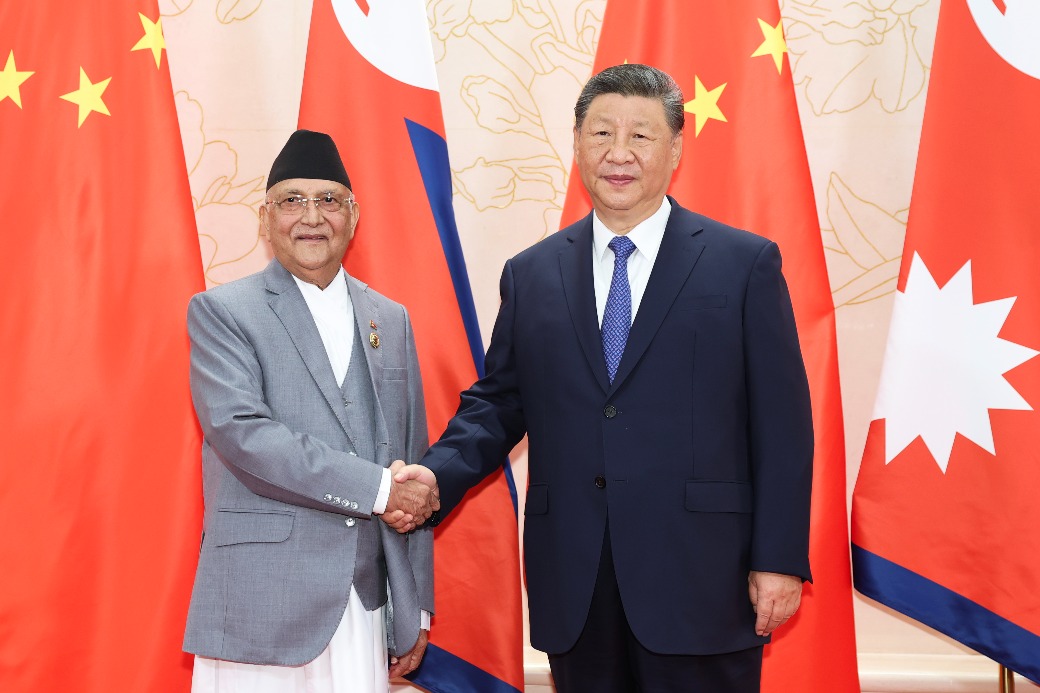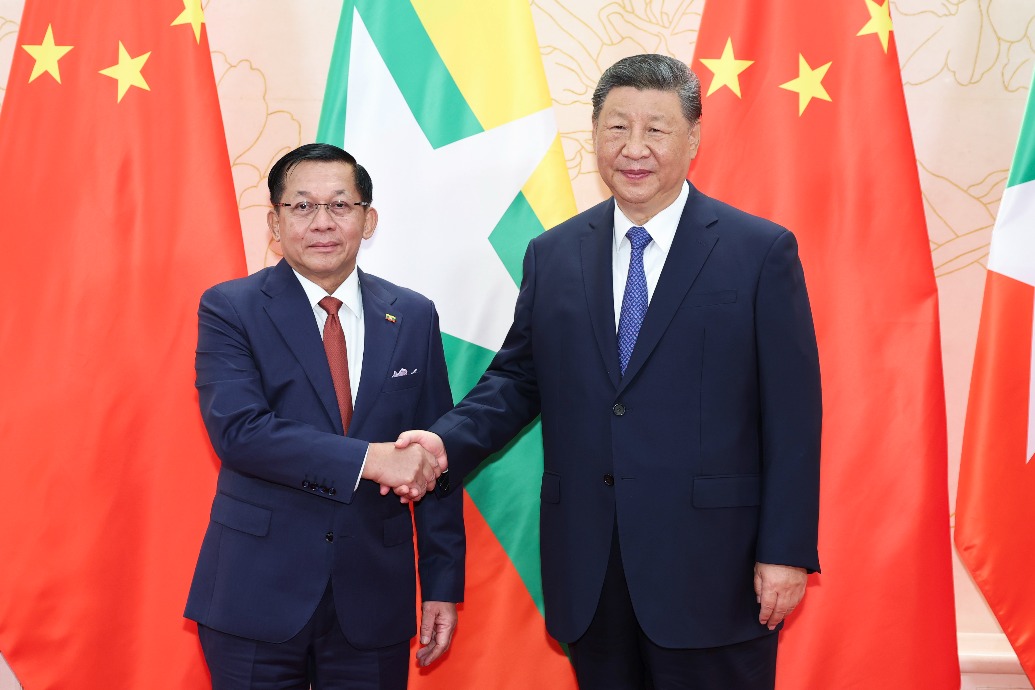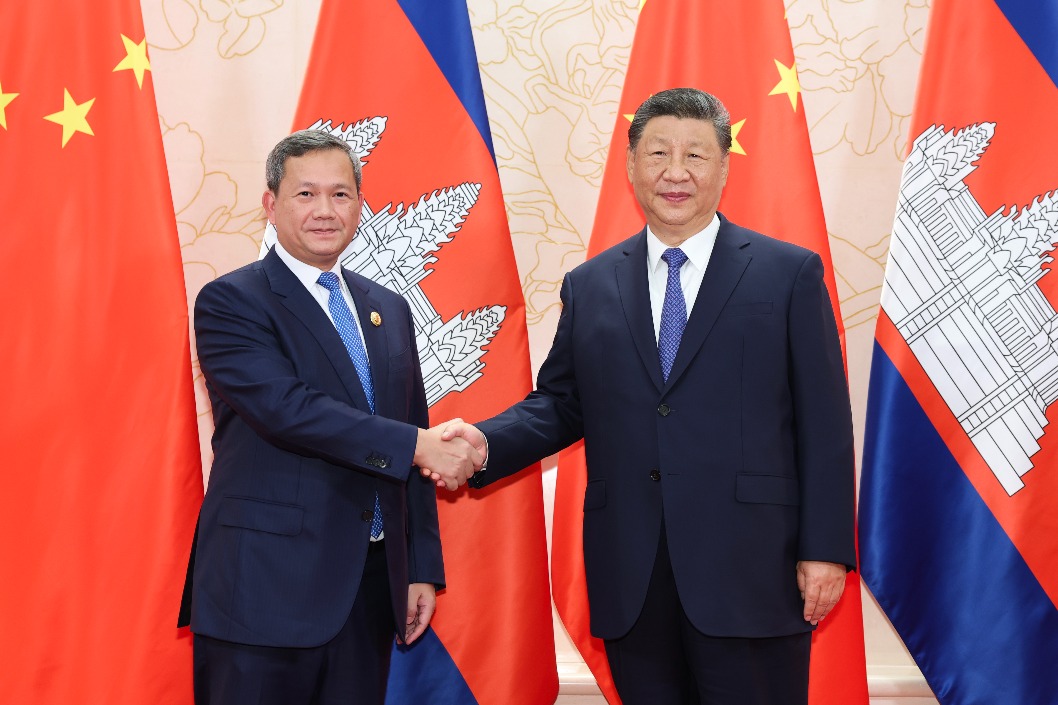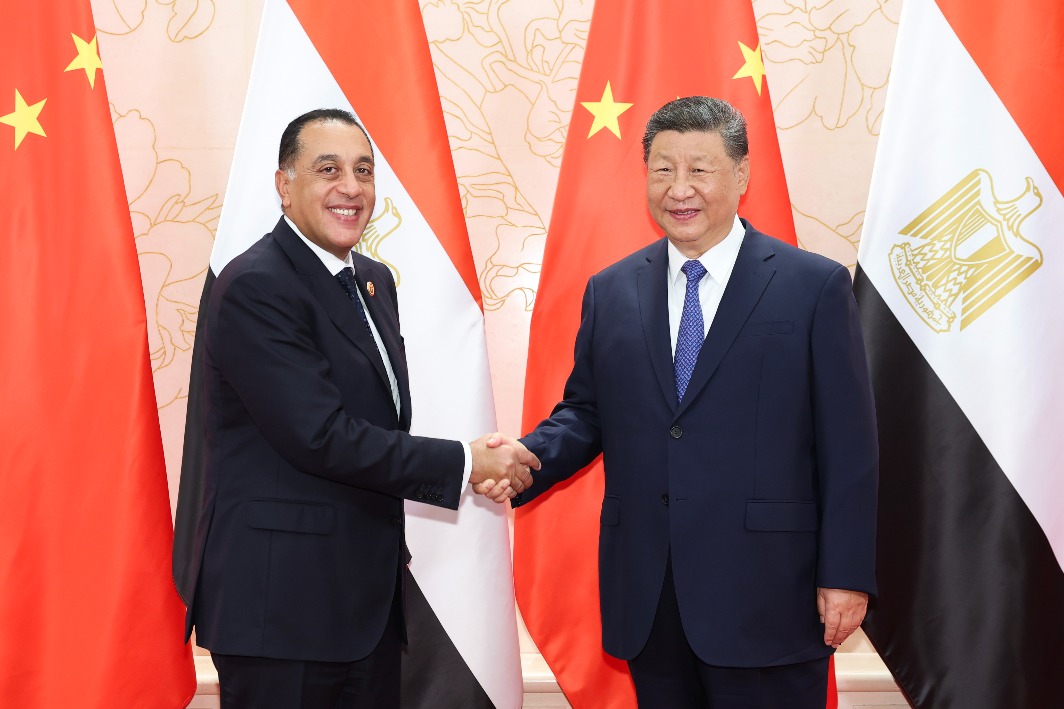Fruitful outcomes expected from high-level exchanges
By Zhang Lihua | China Daily Global | Updated: 2024-04-08 08:59
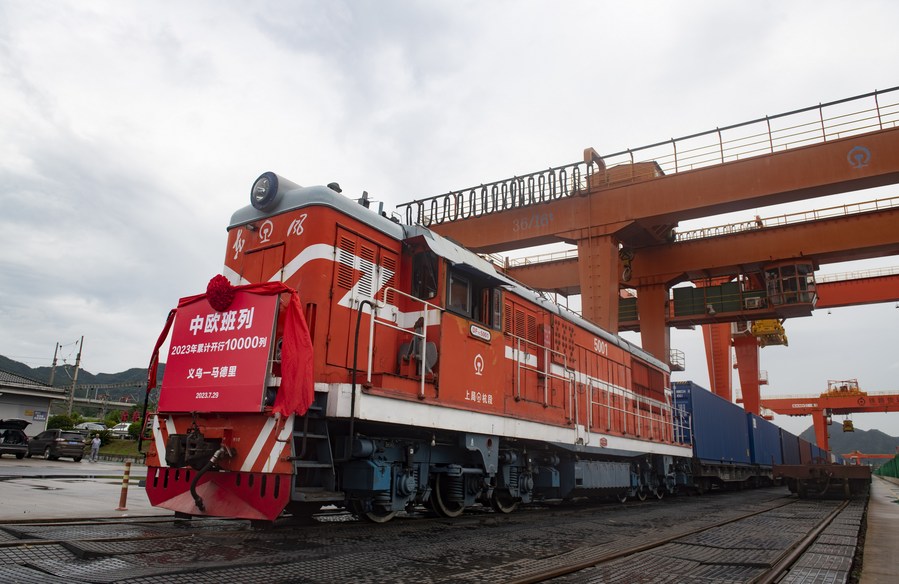
There has been a notable increase in visits to China by European leaders and business figures recently.
French Minister for Europe and Foreign Affairs Stephane Sejourne made a trip to China on April 1, Prime Minister of the Netherlands Mark Rutte visited China on March 26 and 27, and Markus Soeder, minister-president of Bavaria, Germany, commenced his journey to China on March 23. These visits are expected to pave the way for more high-level political and business delegations from Europe to China in the near future.
In recent years, Europe's view of China has become increasingly critical, prompting adjustments in its policy toward China. Some European politicians have called for a reduction in economic dependency on China and advocated for "de-risking" from China. However, the recent flurry of visits suggests a shift toward a more rational stance on China by Europe, signaling a positive outlook for the future of China-Europe relations.
Currently, the global economy is facing headwinds, with a rise in economic nationalism and protectionism. There is an increase in politicized actions such as decoupling and "building walls and barriers", with unilateralism and deglobalization trends prevailing.
China and Europe maintain their status as each other's second-largest trading partner, with their economic and trade relations characterized by strong complementarity. In Europe, there is a high demand for China's affordable daily consumer goods and light-industry products, while European agricultural products, specialty items and technological products find a welcoming market in China. This exchange not only enhances the quality of life for people on both sides, but also forms the cornerstone of the relationship between the two sides.
In 2022, trade between China and the European Union reached $847.3 billion, averaging $2.3 billion per day. In 2023, the China-Europe Railway Express operated 17,000 trains, linking 219 cities across 25 European countries and driving economic development and the improvement of living standards along its routes.
Both China and Europe, as large and open economies, have significantly benefited from globalization. They recognize that their development hinges on a stable and open global economic environment. Thus, trends toward anti-globalization or deglobalization are counterproductive to their interests.
Together, China and the EU contribute one-third of global economic output. Their robust economic ties and mutually beneficial collaboration not only bring advantages to their peoples, but also set a model for global economic interactions. Committed to furthering its economic openness, China continues to implement a series of major measures for high-level opening-up that are poised to generate new development opportunities for countries and regions worldwide, including the EU and its member states.
Although economic and trade relations between China and European countries face challenges, including trade deficits, barriers and friction, it is hoped that by adhering to the principles of mutual benefit, reciprocity and win-win cooperation, both sides can surmount these obstacles and achieve shared development. There exists a profound desire for friendly exchanges between the peoples of China and Europe, alongside a significant complementarity in their trade relations. These factors serve as a fundamental driving force for navigating through the challenges in China-Europe relations.
China and Europe have certain divergences in the fields of politics, economy and ideology, because of their differences in history, culture, social systems and economic structures. But as long as both sides treat each other with mutual respect, set aside biases, find common ground while acknowledging differences, engage actively, and avoid third-party interference, they can pave the way for mutually beneficial and win-win collaboration that serves the interests of both parties.
The arguments advocating for the decoupling of China-Europe trade not only contradict the trends of economic globalization, but also fail to represent the true interests of the peoples of China and Europe. The rise in rational voices within Europe, as well as their increasing prominence, is a positive development for Europe itself, for China-Europe relations, and for the global community.
China and Europe both have rich histories and profound cultural heritages. At the heart of both Chinese and Western cultures lie the ideals of peace and harmony, which hold significant value for fostering mutual understanding, tolerance and friendly interactions between the peoples of China and Europe. It is essential for both sides to amplify positive dynamics, mitigate negative ones, and enhance official as well as people-to-people exchanges.
Engaging in multilevel and multidisciplinary dialogues, exchanges and cooperation will enable both sides to learn from each other's strengths and promote mutual enrichment. We warmly welcome more Europeans to visit China and encourage more students from European countries to come to China for study or exchange. We eagerly anticipate more fruitful outcomes from China-Europe exchanges and cooperation.
The author is a professor in the Department of International Relations at Tsinghua University's School of Social Sciences. The views do not necessarily reflect those of China Daily.





